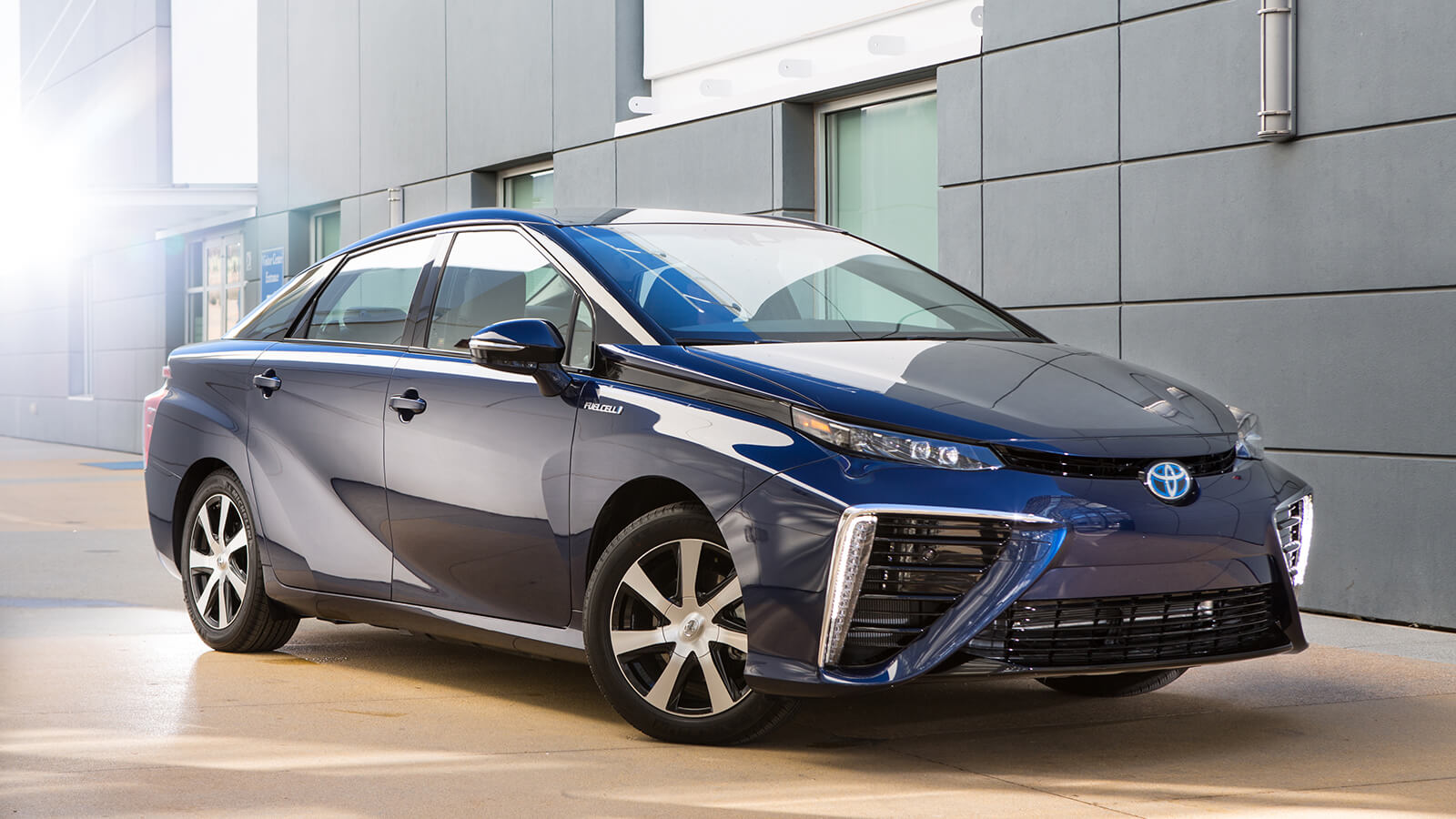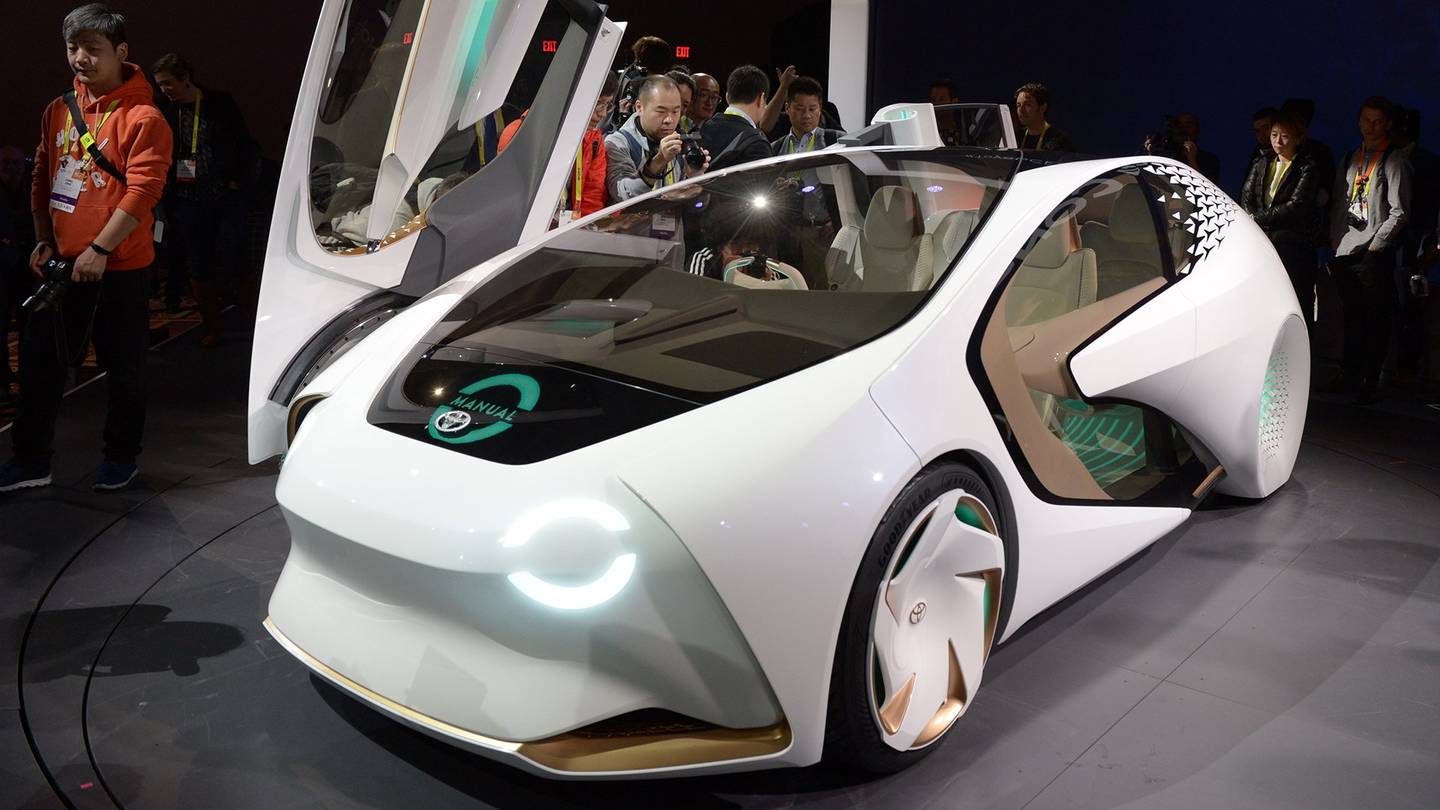Toyota is going to create electric cars along with "hydrogen" cars

This week, Toyota executives announced that by 2025 the company would have an electric version of any car model from the Toyota or Lexus model range. This does not mean that the company will produce only electric vehicles. This may be a hybrid model. By 2030, the Japanese are going to produce annually 5.5 million electric vehicles. Of these, 1 million are cars with zero environmental impact (both cars with batteries and hydrogen cars). In 2016, Toyota sold about 1.4 million hybrid cars.
Hybrid cars of the corporation are popular for about 20 years , this is a solid period. Nevertheless, the company plans to explore new horizons in order not to stop there. In addition to other models, it is planned to start production of hybrid “hydrogen-electric” machines. That is, such a vehicle will have both fuel cells and a battery that can be charged in the usual way.
According to the company, "clean" electric cars are all good. But in this case, the weight of the battery affects the total weight of the vehicle, which is not always convenient. But the fuel-electric hybrids combine the advantages of both options. A hydrogen tank can be filled within a couple of minutes. The company has now begun Shell cooperation in order to create several stations for refueling in California.
Anyway, but hydrogen cars have their own problems, they are not without flaws. For example, hydrogen is difficult to store, it is constantly under pressure, plus it must be stored at a low temperature. In addition, hydrogen cars appeared a few years ago, but the stations for refueling hydrogen cars with their fuel did not increase. But electric charging stations began to spread very actively. As far as can be judged, now it is full electric cars - the most promising type of transport.
Nevertheless, the research work on the search for new approaches in the creation of "hydrogen" cars does not stop. Now Toyota is working on the creation of solid-state batteries. As far as can be judged, the project turned out to be quite successful, so the Japanese company plans to release its cars in a couple of years. New type batteries have solid electrodes and electrolyte. Liquids are absent (or almost none). Therefore, theoretically, they can be, other things being equal, characteristics be smaller in size and weigh less than ordinary batteries. A huge advantage of solid-state batteries is also the fact that they operate in a much wider temperature range than their Li-Ion “brothers”. In addition, the probability of fire from them is much lower.
By 2020, Toyota promises to provide 10 different models, working on electricity, and equipped only with batteries. That is, we are talking about "clean" electric vehicles with predominantly solid-state batteries. The first such vehicles will be presented on the Chinese market, after which they will be sold in Japan, India, the USA and Europe. It is worth noting that China is one of the countries where electric vehicles become more and more every year. This is the best place for the development of electric vehicles. In 2016, it was in China that about 40% of electric cars of the total volume of cars of this type sold were sold.

Like Tesla, the company plans to join forces with Panasonic in order to begin bringing solid-state batteries to markets in various countries. But for this, you must first join forces with a partner and find the best option for batteries.
Whatever it was, Toyota is not going to give up the Toyota Mirai hydrogen car. I must say that yes, the car turned out really great. The only problem is that now there are practically no charging stations for machines with fuel cells, as mentioned above. And without this, no matter how cool the car, it will not become popular. Now for the popularization of electric vehicles and other vehicles on other energy sources, it is necessary to constantly add elements of service and charging infrastructures - service centers, charging stations, etc.
All Articles